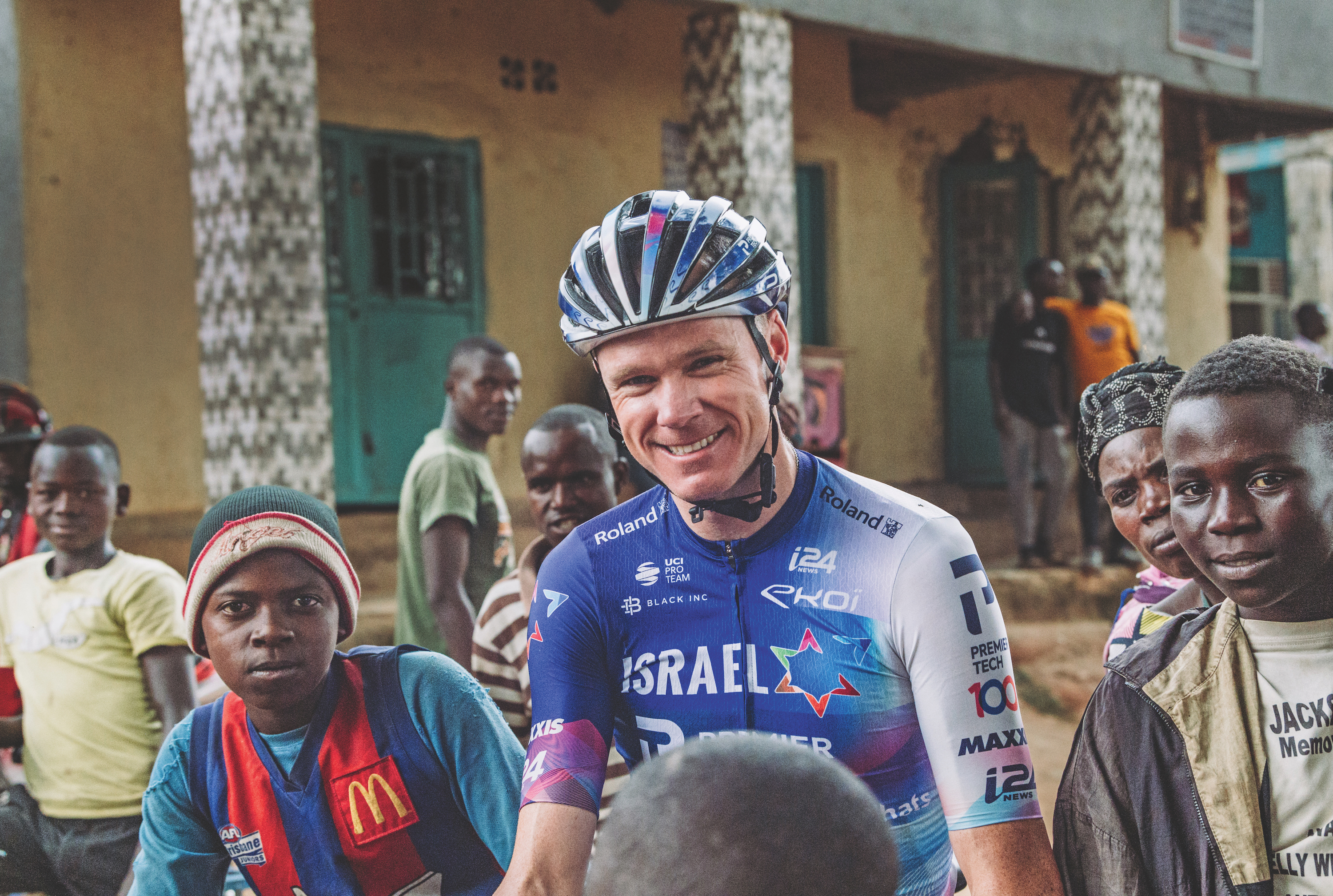
On a hot, cloudless March day in 2009, a young Chris Froome took to the roads of Africa for the Cape Argus Giro del Capo Challenge. Riding for the British registered, Italian-based Barloworld team, Froome already had a Tour de France in his legs and comfortably won the first of three days of racing in South Africa against a small field of riders most of whom had never been anywhere near a Grand Tour.
The former Kenyan mountain biker was still working life out as a professional rider, and that win was his third ever on a road bike. Days later he was back in Europe and settling into a season of more intense racing.
Looking back at his results that year with the benefit of hindsight – 36th overall in his first Giro d’Italia – there was clearly some potential there. Froome hadn’t grown up racing in Europe and the pro peloton is not a welcoming environment in which to learn your craft, but his results were solid enough, and singled him out as someone who wasn’t just there as cannon fodder.
Still, few would have predicted the 23-year-old who had recently started riding under his British passport would go on to win four Tours de France, a Giro d’Italia and two Vueltas a España in a palmarès that makes him the best Grand Tour rider of his generation.
Fourteen years on, the 37-year old returned to Africa to race on the continent for the first time since his pre-WorldTour days, riding the Tour du Rwanda for Israel-Premier Tech. It might be his 14th year as an elite cyclist, but still he battles on, having survived a potential career-ending injury and worked tirelessly just to get to the point where he can feel comfortable on a bike.
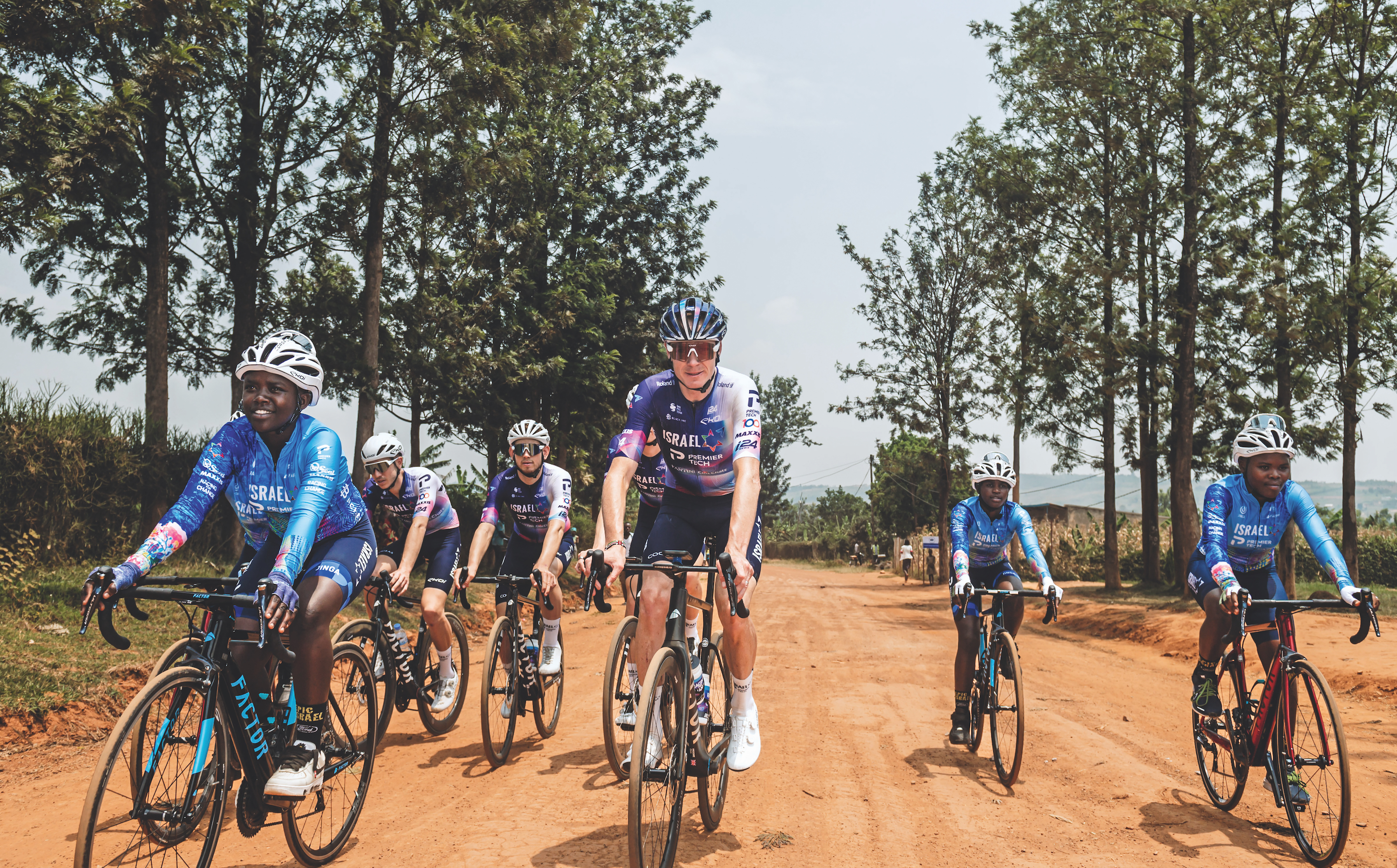
Full circle
“It feels as if I’ve done a full circle now. Back in Africa again,” Froome tells Cycling Weekly, ahead of his week of racing in central Africa. “It feels a bit surreal to be racing in an African setting with a whole bunch of WorldTour teams. It’s pretty cool for the continent. It’s very much on the up. I really believe that Africa will be the continent in the next decade where we see a huge rise of professional cyclists coming through.”
Froome was born in Nairobi, and grew up in Kenya and South Africa before moving to Europe as an adult. He might not be the poster boy for African cycling, he rides under the GB flag, but Rwandan capital Kigali – 750km from the town of his birth – feels like home. Watching him in Rwanda is to see a man comfortable with himself, a man enjoying his surroundings. It’s a long way from the hidden away Froome from his Sky days.
“There’s a lot of colours that remind me of where I grew up,” he says. “The general culture and way of life. There are some interesting differences that make it good for cycling too, the roads are amazing.”
He might be “no spring chicken” at 37, but the Israel-Premier Tech rider was not just at the Tour du Rwanda for fun, he was aiming to kick-start his season, his third with the team. On stage five, the Friday after Froome spoke to CW in his Kigali hotel, he set off alone with more than 100km to race, in the pouring rain, in a manner that was redolent of his Giro d’Italia-winning move on stage 19 in 2018.
The usual Rwandese crowds would not have been present in the rain, but there would have been a real appreciation for the effort. The whole week, Froome was the star man at the race, a Tour de France champion actually there, metres away from fans.
Rwandese fans are interesting. They don’t cheer or get too close to the peloton like their counterparts in Europe, instead they stop and stare. To go from having no conception of bike racing to seeing a whole bunch go past must be mind-bending. No doubt they’ll learn to look out for discarded bidons.
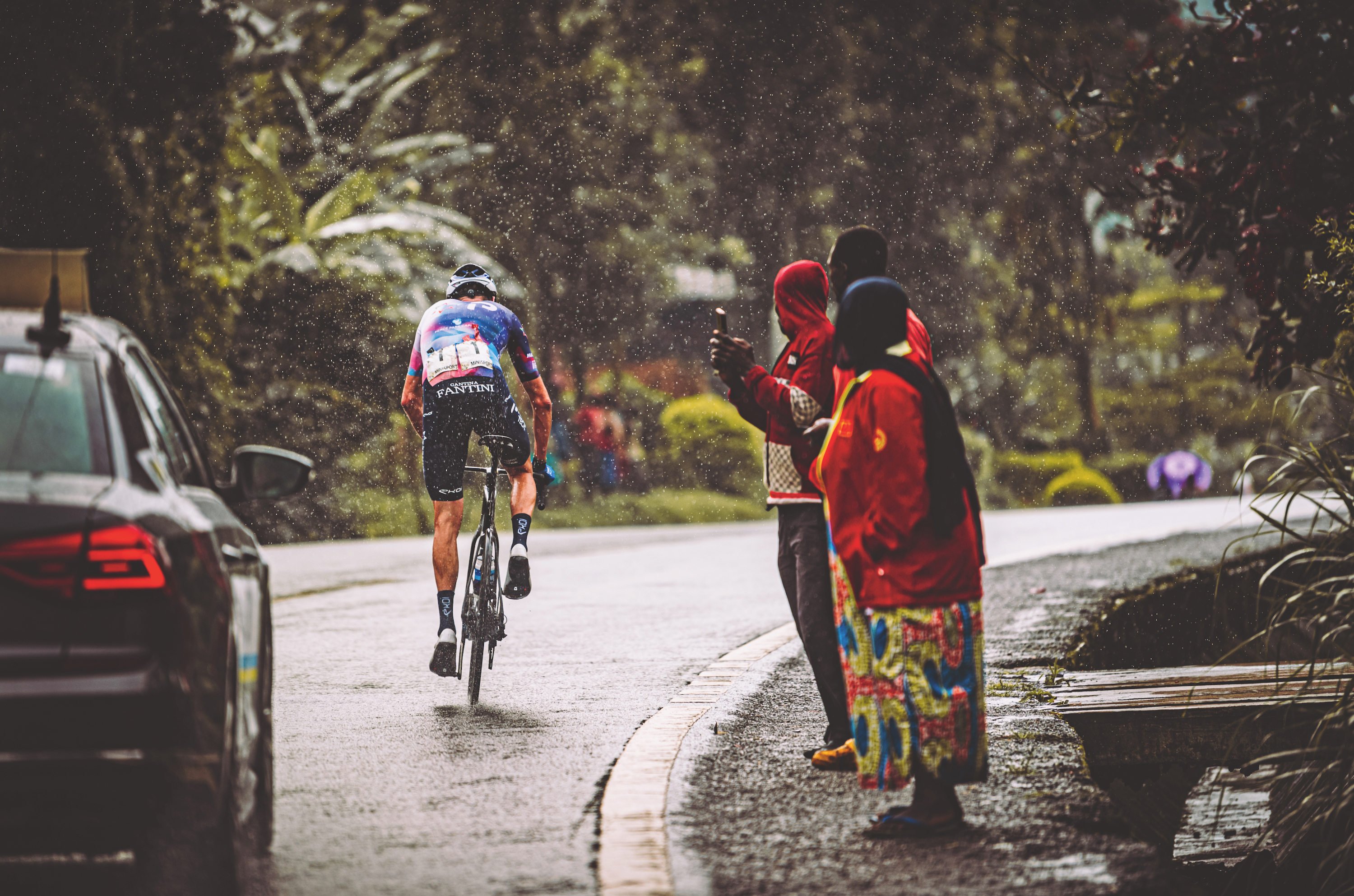
Cruise control
However, despite a lead of over 30 seconds on the chasing Mikel Iturria (Euskaltel-Euskadi), and a minute over what was left of the peloton with 45km to go, Froome punctured, had two wheel changes, and crashed on a slippery descent, ending his big day out.
“There were definitely elements of my Giro ride today, elements of going into 100km time trial mode, and trying to ride a speed I could sustain for 100km,” Froome said. “It was a tough day, over 2,000m for a lot of the stage today, and I could really feel the altitude taking its toll.
“But that’s what I’m here for, and I’m really happy to do that. I’m here to get the hard miles in and set myself up for races to come.”
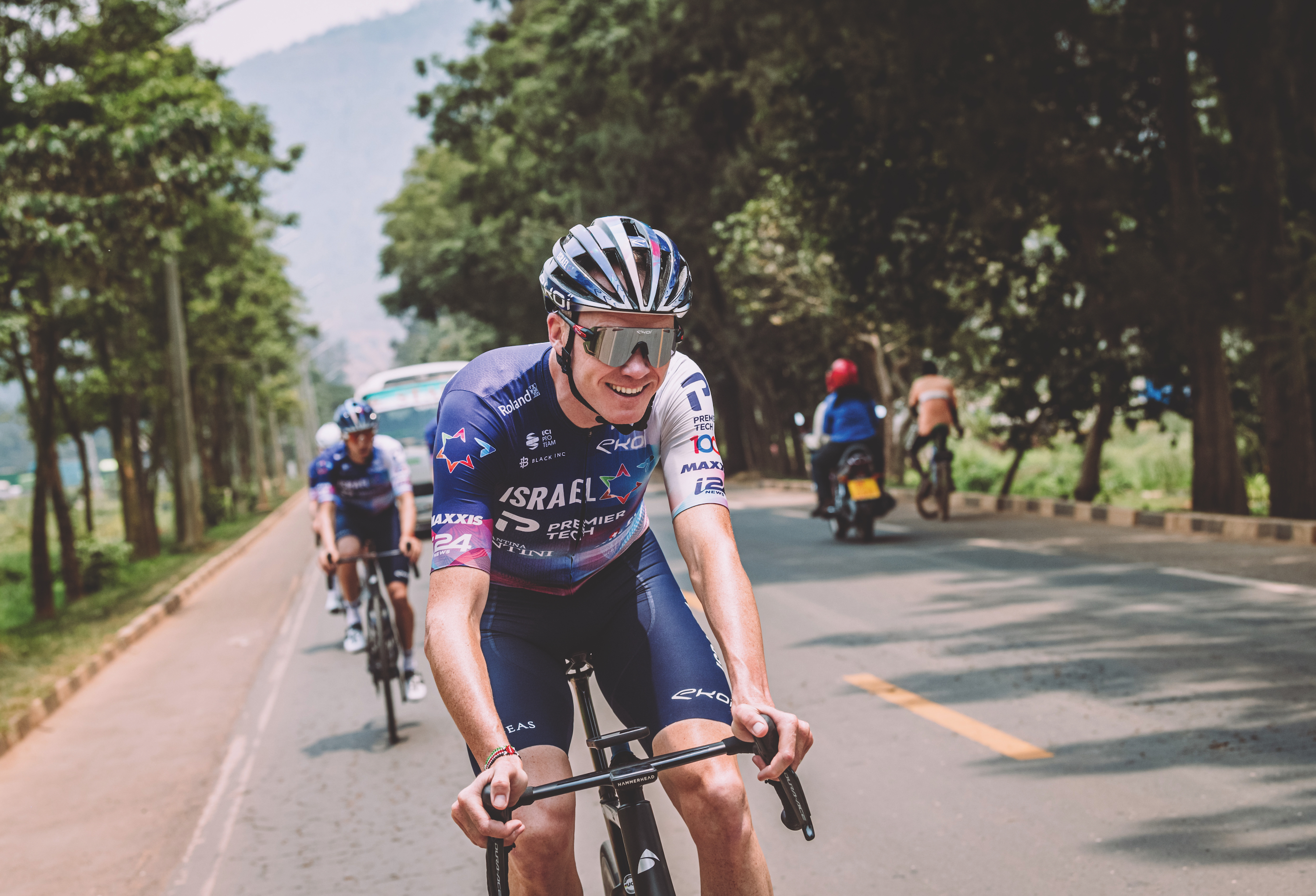
Passing time
That Giro, five years ago, which was sealed by that outrageous solo move, was the last time that Froome won a race. It was the culmination of Grand Tour wins that meant he was the champion of the Tour de France, Vuelta a España and Giro concurrently, an era-defining achievement.
“It feels like a lifetime ago,” Froome admits.
Much of the discourse that has centred around the four-time Tour winner has been about whether he can get back to the form that made him a Grand Tour winner, whether he can win a fifth Tour, the one that would put him on a par with Jacques Anquetil, Eddy Merckx and Bernard Hinault.
When Froome has been asked – repeatedly – whether he can win again, he answers in the affirmative, as he has always done. What is he supposed to do, tell the world that he thinks he is done, that he has little chance of winning the race that his whole career has been centred around?

Back from the brink
Four years ago, during a recon of the time trial course at the Critérium du Dauphiné, the then 34-year-old crashed violently, threatening his life and his career.
It took a long time and a lot of hard work on and off the bike for Froome to get back to a point where he felt comfortable and pain-free on a bike.
All this while trying to renegotiate his contract with Team Sky who he’d been riding with since it launched in 2010, before eventually switching to a lucrative deal with Sylvan Adams’s Israel Start-Up Nation team. It was clearly a stressful period, and Froome, with his glittering palmarès, could easily have taken retirement. But one gets the sense that cycling is everything to him, it’s all he has known for much of his life, and the journey back to being a useful professional rider again was necessary.
When he is on a bike, having fun, as he was in Rwanda, you get a sight of the real man, the one that hasn’t had the joy media-trained out of him. You also see this in his YouTube channel, something he has started since his Sky/Ineos days.
“There are parts of cycling that become a lot more like work,” he explains. “When you’re doing massive intervals, you’re low on fuel, it sometimes feels like hard work. But then there are days like yesterday [when Froome helped launch Israel- Premier Tech’s Rwanda project], where you get to just enjoy yourself, on a pump track, or go out for an easier relaxed ride. That kind of stuff makes it worth the harder days when it does feel like work and the weather’s grim, and you don’t want to be out on the bike.
“There were times where I was in pain on the bike, and that was tough. But that was a part of the rehab process. I knew I’d have to go through to get to now, where I’m pain-free, and it feels like I can just get stuck into it again.”
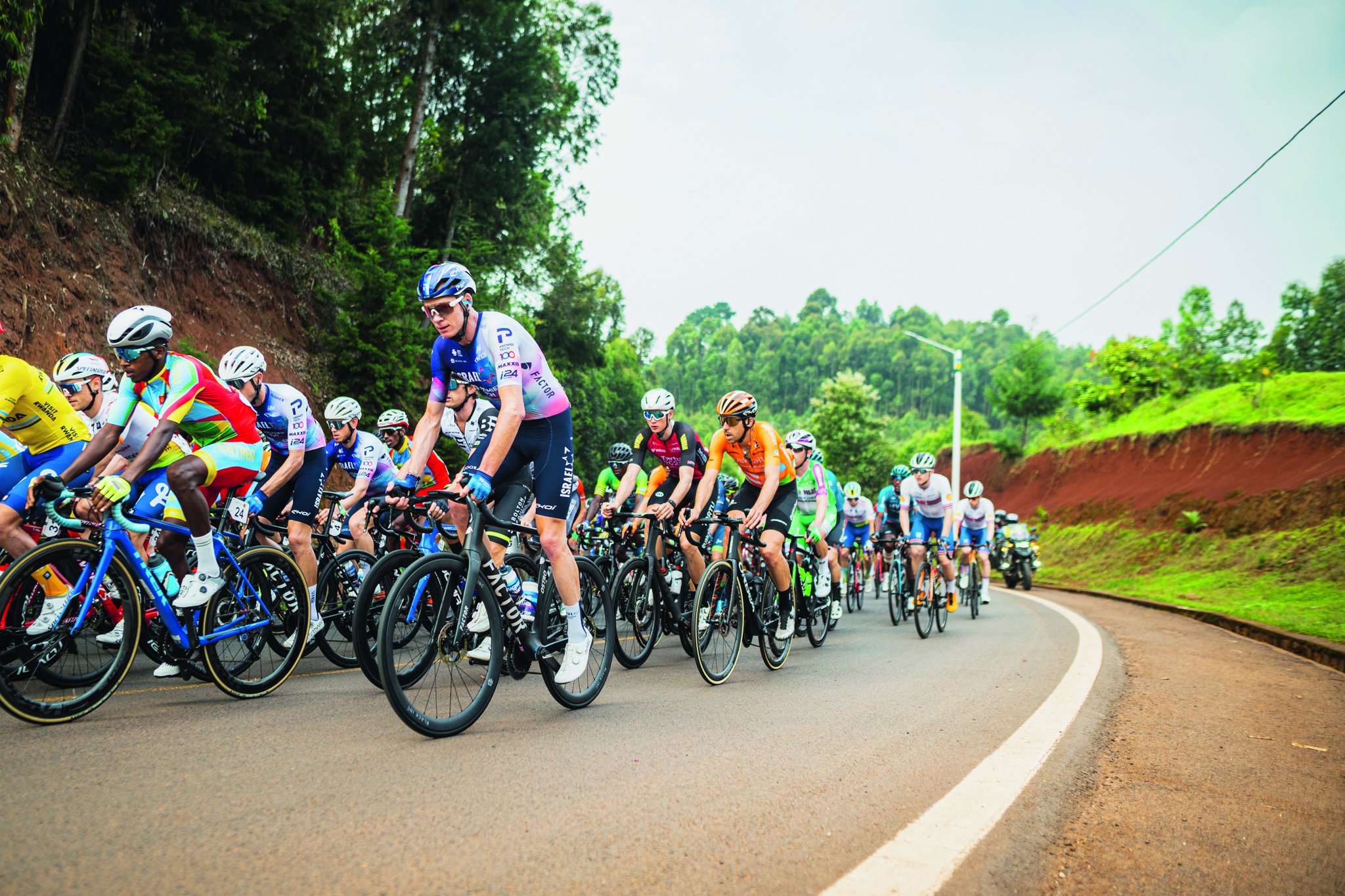
The present and the future
Froome does not think about his cycling legacy. That’s for other people to debate and mull over. He knows that his career will not last forever, but won’t entertain thoughts of how he will be remembered: “It’s not really something I think about.”
However, he is thinking about the future of cycling, especially in terms of helping those who don’t have access to the same pathways as he did. The 37-year-old is investing in a community project in Kenya for getting children into cycling, details of which he is coy on.
“It’s something that I’ve wanted to do, but never really been able to dedicate the time to while I’ve been professional,” he explains. “I’ve managed to team up with some people who are going to be able to make it happen. I’ll have more on that in the coming months.
“It’s about the joy that can be brought in and what it will do to the community as a whole. It’s a continued project for perpetual uplift for the community.”
Another part of Froome’s future in cycling is the investments he holds in multiple brands – Hammerhead, Factor and Quadlock to name three. “I like to invest in companies and people who I believe in and when I believe in the product and the people behind the project,” he says. “It’s a way for me to stay involved in the cycling world, I guess beyond cycling. I’m certainly at the tail-end of my career now, I’m no spring chicken anymore. It has been something that I’ve been thinking about.”
However, while he has been trying to get back to his best possible self, the sport of cycling has moved on. Froome has only raced in five events against Tadej Pogačar and two times against Remco Evenepoel, but never challenged them for the overall.
“I feel that the wealth of knowledge has changed the sport drastically,” Froome says. “Having the data from guys racing at the highest level, having that available publicly, through Strava, or whatever else, and for coaches and trainers to be able to then apply that data to kids of the age of 15, 16. This means that we’ve got kids who are turning pro at 19, 20. They’ve been training like Grand Tour winners for five years already.
“I only turned professional at the age of 24. I spent a good four or five years making mistakes and trying to learn how to train, learn how to eat, how to be professional, basically. Whereas these kids are learning that in their teens, and getting all the mistakes out of the way by the time they actually turn pro. I think the sport really has changed a lot in that sense.”
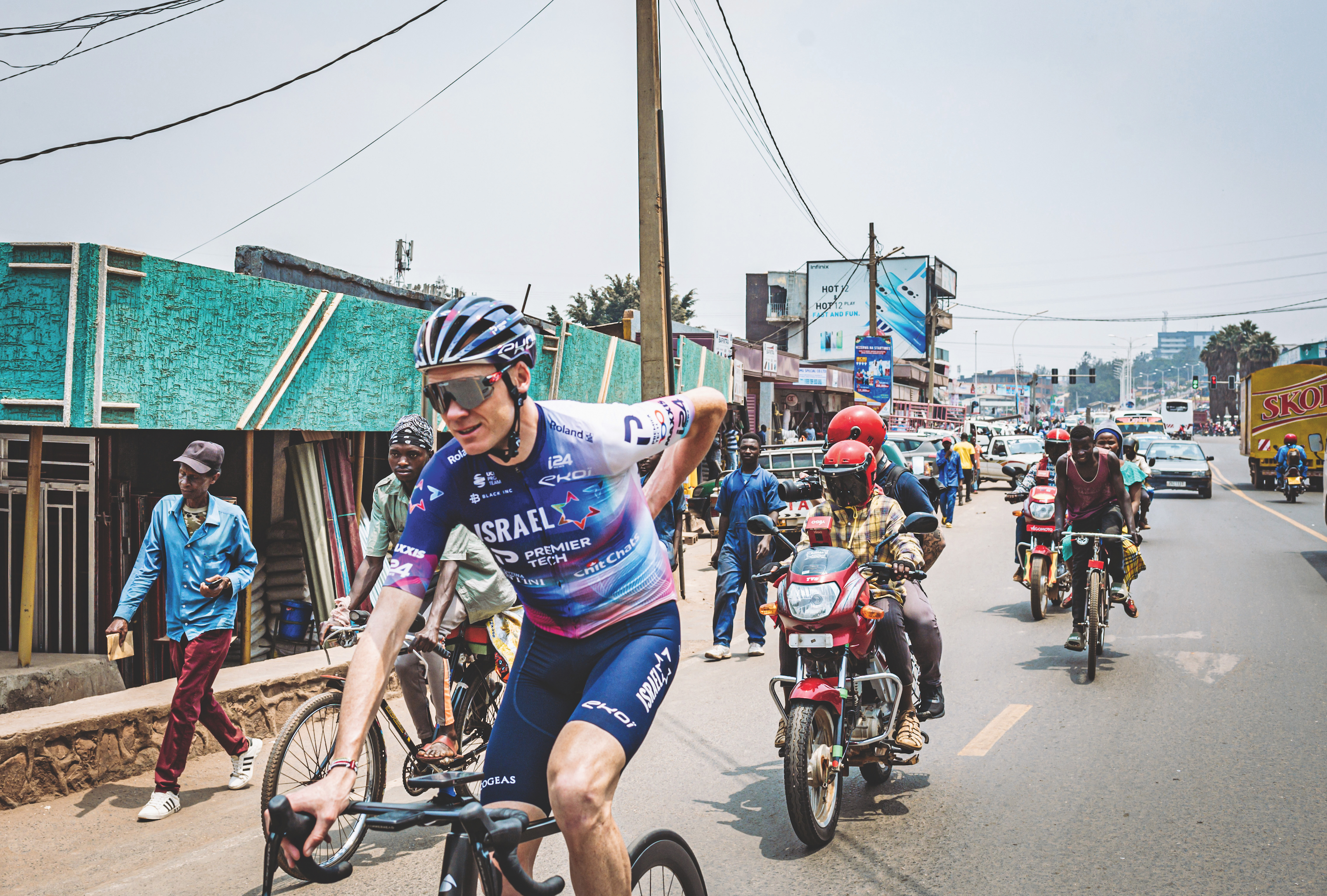
New school, new skills
A rider like Pogačar or Evenepoel seems vastly different from Froome, able to race across the season for different objectives, rather than pinning it all on one yellow jersey.
“I have massive, massive respect for Pogačar,” Froome says. “I know what it takes to win a Grand Tour and how I’ve had to train to give myself the best chance of winning. I feel it has really blunted my ability in one-day races. So I’m amazed. For me, it’s always been one or the other, you see guys who have the ability to go three weeks, or you can have your one-day specialists
“To see him perform the way he does in one day races with an extremely punchy style of racing, explosive style of racing, then do the same over three weeks as well… It’s mind blowing.”
Five years on from his last win, the 37-year-old is finally back at a place where he can enjoy cycling again, ride pain-free. A valedictory victory would finish his career off nicely, but it might not be coming fast. However, he will keep riding on for as long as he can.







